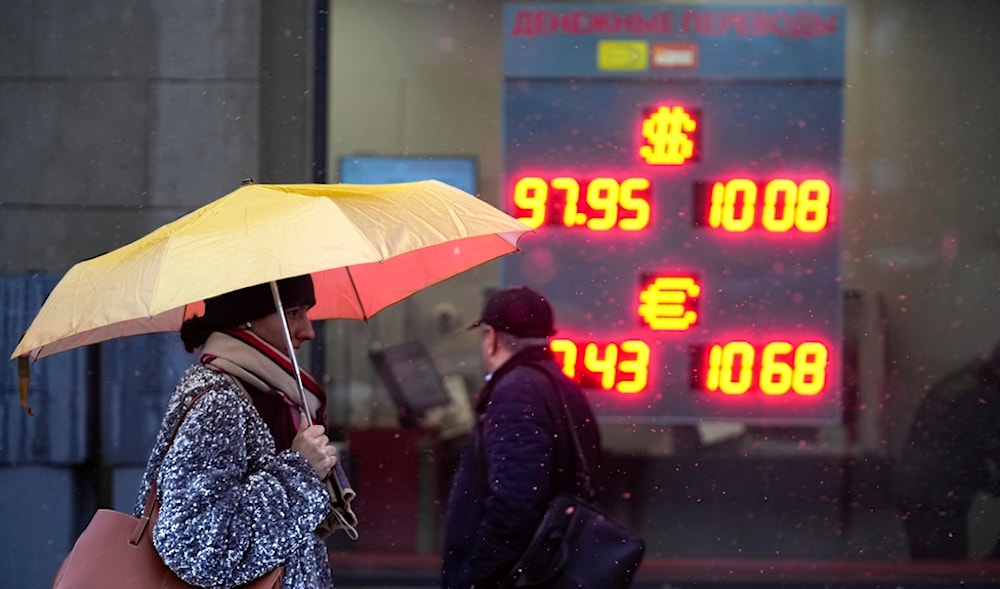European markets rise as dollar slumps amid 'Trumpcession' fears
The US dollar has hit a major low since Trump was elected in January, paving the way for the rise of the Euro.
-

Pedestrians walk in a street near an exchange office sign showing the currency exchange rates of the Russian ruble, US dollar, and euro in Moscow, Russia, on Wednesday, November 20, 2024. (AP)
European markets rallied while the euro surged to its highest level since the US election, as the dollar weakened against major currencies due to growing concerns over a potential US recession, dubbed the "Trumpcession".
The euro climbed above $1.09 for the first time since Donald Trump’s election win, reversing the earlier "Trump trade" that had strengthened the dollar.
Investors are now worried that new US tariffs on Canada, Mexico, and China—along with potential levies on European goods—could trigger an economic downturn. The dollar fell 0.5% against a basket of currencies, hitting its lowest level since October.
Following Monday’s global stock sell-off, Asian markets remained volatile, with Japan’s Nikkei dropping 0.6% and South Korea’s market falling 1.3%, while Chinese stocks posted slight gains. In Europe, Germany’s DAX rose 0.7%, France’s CAC 40 gained 0.5%, and Italy’s Borsa increased 0.3%, while London’s FTSE 100 dipped 0.2%.
Stephen Innes of SPI Asset Management noted that while panic has not yet set in, market sentiment remains fragile due to concerns that aggressive tariffs and government spending cuts could slow US economic growth.
Tesla, Trump, and the economy
Amid Tesla’s stock slump, which saw shares lose over 15% on Monday and more than half their value since December, Trump expressed support for Elon Musk, accusing “Radical Left Lunatics” of attempting an “illegal” boycott. He also pledged to buy a Tesla car.
The Financial Times (FT) reported in February that Tesla sales dropped significantly in Europe in January, indicating a decline in demand for the company's vehicles following increased political involvement by its billionaire CEO, Elon Musk, in the region.
In January, the EV maker sold only 9,900 units in Europe, a more than 45% drop compared to the same period in 2024, according to the European Automobile Manufacturers’ Association. As a result, its market share of new car registrations fell to 1% from 1.8%.
The FT report mentioned that Tesla’s declining market share follows Elon Musk’s controversial involvement in EU politics, where he endorsed the far-right Alternative for Germany (AfD) ahead of the country's elections, drawing backlash across Europe.
Warnings of a recession
Swiss bank UBS raised the likelihood of a US economic downturn to 30%, up from 25% last month. Investors, reacting to weak US economic data and a possible ceasefire in Ukraine, have shifted towards the euro and Japanese yen.
Analysts attribute the euro’s rise to the unwinding of Trump-era tariff policies, Germany’s fiscal shift, and the European Central Bank’s hawkish rate stance. Some predict the euro could reach $1.15 by year-end, with expectations that it may climb even higher in the coming years.

 3 Min Read
3 Min Read










